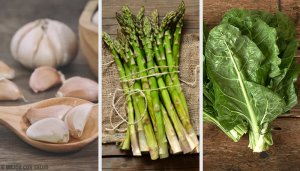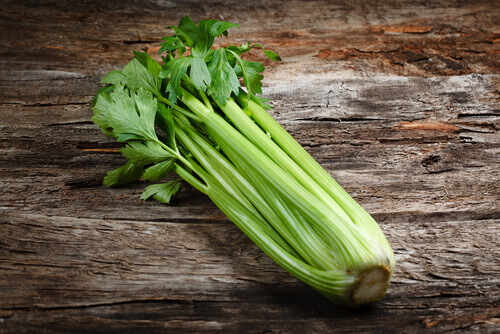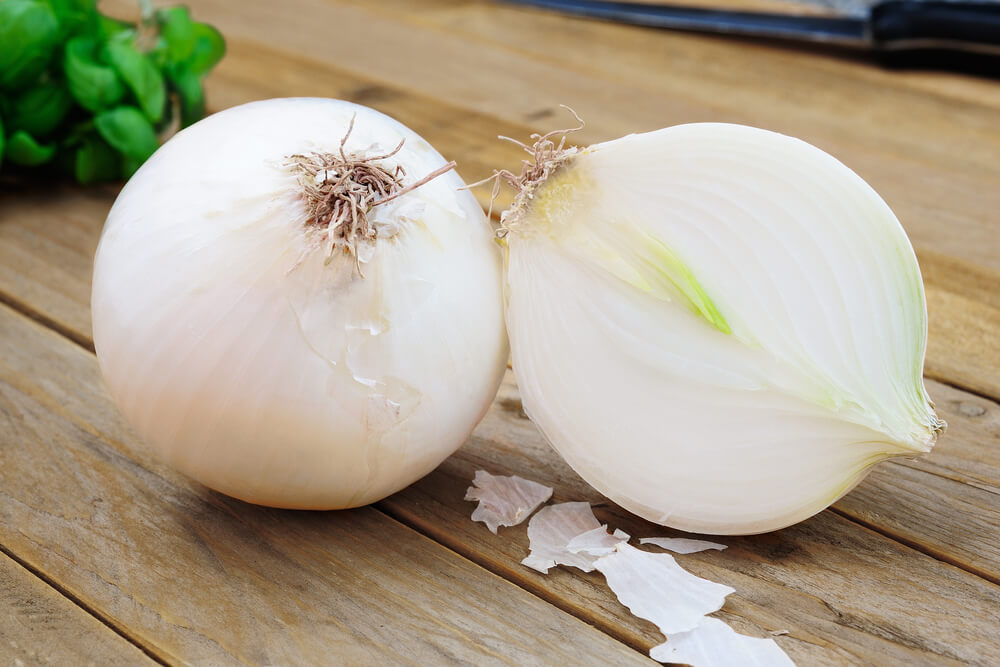8 Vegetables that Cause Allergies


Written and verified by the doctor Nelton Abdon Ramos Rojas
Did you know that there are 8 vegetables that cause allergies?
Allergy to any food is nothing more than the body’s exaggerated immune response to substances capable of triggering a reaction. People who suffer from allergies to vegetables have an antibody called IgE that causes this reaction. This antibody can be produced even if the vegetable was previously eaten without problem.
In a study entitled, Alergológica 2015, conducted in Spain, it was shown that 7.4% of people go to an allergist because they have allergies to pollen, fruits, and vegetables.
The symptoms vary, are of varying intensity, and affect one or several organs of the body.
These symptoms can appear if the person eats this type of food regardless of whether it’s natural or processed.
It’s important to remember that not all of us react in the same way to the different compounds in food. Each human body is different and what affects one person may not necessarily affect others.
Allergic reactions to food from plants are usually produced by some substance or molecule.
That’s why today in this article we bring you a small list of vegetables that can cause allergic reactions.
8 vegetables that cause allergies
1. Carrots

Believe it or not, there are people with an allergy to this vegetable. If you’re allergic to pollen, you’re probably allergic to carrots.
This happens because of the structural similarity of their components. Pollen proteins are similar to those in carrots.
The allergic proteins in carrots don’t disappear even if we cook them. The one responsible is an inhalant allergen that cross-reacts with the carrot.
Among the most common symptoms are:
- Anaphylaxis (difficulty breathing, low blood pressure, and loss of consciousness)
- Increased heart rate
- Anxiety
- Confusion
- Dizziness
All these symptoms can lead to a coma and, in some cases, death.
They appear quickly after eating, so immediate medical attention is vital.
2. Lettuce
Lettuce is the food most related to lipid transfer protein syndrome. The consumption of this vegetable is a frequent cause of allergy.
- Lettuce also produces anaphylaxis, and more care should be taken because of the different pathogenic bacteria found on its leaves, which can cause diseases.
If you’re not allergic to it, in any case you should disinfect it carefully, with boiled water or vinegar, in order to kill these bacteria completely.
3. Celery

This is a common allergy, since it’s a similar allergy to that of birch pollen. Raw or cooked celery can cause reactions ranging from dermatitis to anaphylaxis.
Also, eating this vegetable and exposure to ultraviolet radiation can produce:
- Lime Disease
- Laryngeal Edema
Although the reactions of celery in humans have not been well studied, it is recommended that if you have any symptoms, you should stop eating it.
4. Spinach
An allergy to spinach is one of the most common. This vegetable is rich in histamine, a chemical that acts in the body as a hormone and neurotransmitter.
Histamine is found in spinach and is released in large quantities in inflammatory processes, which is why it’s one of the main causes of allergies.
5. Onion

Onions contain a specific mineral (sulphur) that improves circulation, but in terms of allergies, this mineral is one of those responsible.
Symptoms of onion allergy appear immediately and include:
- Sickness
- Vomiting
- Diarrhoea
- Stomach cramps
- Hives (also from contact)
- Inflammation of the respiratory tract
- Anaphylaxis (in some cases)
6. Garlic
Although there are very few recorded cases of this allergy, they do exist. So, if you are one of them, pay attention.
For some individuals the symptoms are very mild, while in others they can be fatal.
The most common symptoms of an allergy to this vegetable are:
- Skin irritation
- Swelling of the tongue and in some cases the glottis
- Abdominal pain
- Diarrhoea
- Nausea and vomiting
- Anaphylaxis
7. Spices

These are a bit more difficult to diagnose, since they’re often used in a mixture, and there are few reliable tests.
Among the possible symptoms are:
- Rhinitis
- Asthma (if inhaled)
- Skin reactions (eczema by contact)
- Conjunctivitis
If you don’t regularly consume these spices and you don’t know if you’re really allergic to them, it’s best to avoid them or consume them in very small quantities.
8. Asparagus
Asparagus, together with onions and garlic, belong to the lily family.
In a study carried out on asparagus allergy, it was shown that individuals who had contact with, inhaled, or ingested this vegetable suffered symptoms of:
- Rhinitis
- Bronchial asthma (by inhalation)
- Hives (eczema by contact)
- Anaphylaxis
If you have ever eaten this vegetable and suffer from any of these symptoms, it’s imperative that you go immediately to a doctor.
This way you can stop these symptoms from getting worse.
All cited sources were thoroughly reviewed by our team to ensure their quality, reliability, currency, and validity. The bibliography of this article was considered reliable and of academic or scientific accuracy.
- La Fe Hospital Universitari i Politècnic. Alergia a proteínas transportadoras de lípidos (LTPs). 2018. Available at: http://alergialafe.org/alergia-alimentaria-menu/107-ltps. Accessed 12/05, 2018.
- MedlinePlus. Alergia. 2018. Available at: https://medlineplus.gov/spanish/allergy.html. Accessed 12/05, 2018.
- SEAIC. Alergológica 2015. 2017. Available at: https://www.seaic.org/inicio/en-portada/alergologica-2015.html. Accessed 12/05, 2018.
- Tabar A, Alvarez M, Celay E, Lopez R, Esteban Bd, Gomez B. Alergia al esparrago. Anales del sistema sanitario de Navarra, 2003;26:17-23. Available at: http://www.alergoaragon.org/2000/cuarta3.html. Accessed 12/05, 2018.
This text is provided for informational purposes only and does not replace consultation with a professional. If in doubt, consult your specialist.








